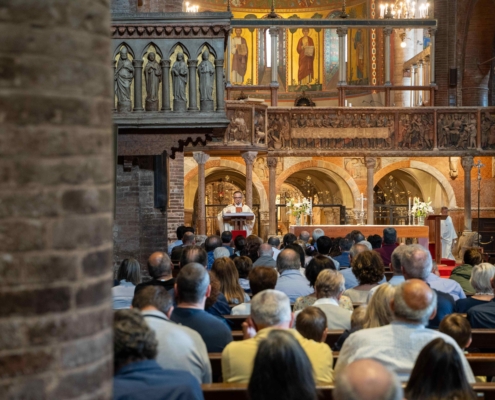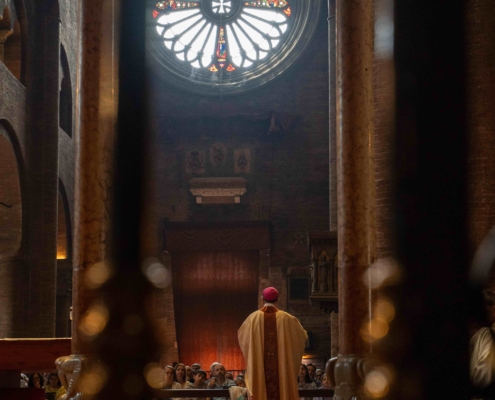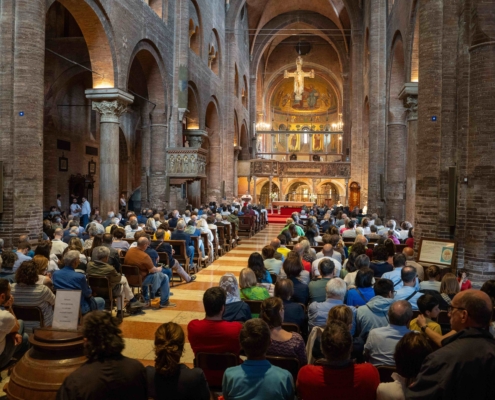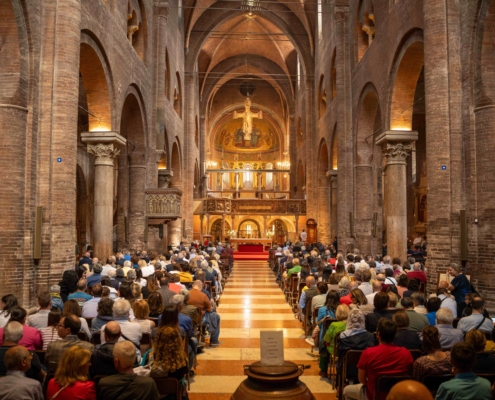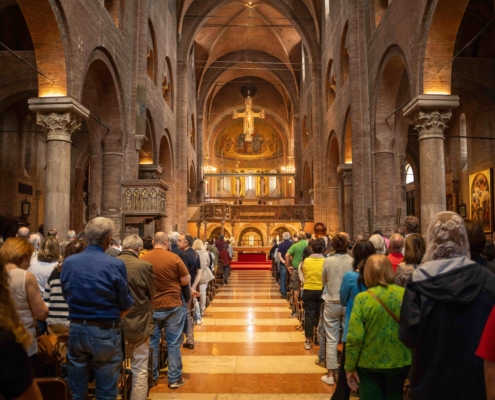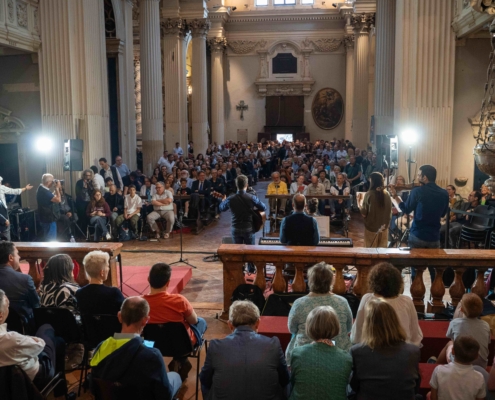Our Heart has not been lost, on contrary, it has become bigger
Mass for the XXV Anniversary of Enzo Piccinini’s dies natalis on Sunday, June 2 in Modena Cathedral, followed by a public meeting to present the book Amico carissimo (BUR 2024)
After the book presentation in Bologna, there was, on Sunday, June 2, 2024, the one in Modena. Enzo had many friends and everywhere, but in Modena even the stones knew him. There he lived with his family, there his children grew up, there he had bought a house with his wife Fiorisa.
The afternoon promised rain, and there was no way. Shortly after the start of the Mass in the Duomo presided over by Archbishop Don Erio Castellucci it began to pour down and the book presentation, instead of in the Piazza as planned, took place indoors, in the wonderful Baroque church of the Voto, a short walk from the Duomo.
Perhaps not a coincidence, because if Enzo was not Baroque, surely the exuberance that distinguished him gave him a form that was outside the box, “in overabundant explosion” like the stuccoes, sculptures, and paintings we admired in the Voto church.
“…Enzo, “said the archbishop during his homily (read the full text here),” …certainly was a person who took seriously the offer … of Jesus and responded with his very strong character by giving his own blood, that is, literally spending himself, with impetus, with depth, with transport, sometimes with impulsiveness; always for the cause of Christ…”
About Enzo’s novelty and topicality spoke the book’s two authors, Chiara Piccinini and Pier Paolo Bellini, and their guest Matteo Matzuzzi, Vaticanist for Il Foglio, who answered some of Bellini’s questions.
We thus learn that the reason for the conversions to Catholicism that are taking place in France among young people from non-Christian families is literally the search for the meaning of life and happiness. Just as happened to Enzo, whose giving credence first and foremost to the voice of the heart resulted in his adherence to Fr. Giussani’s experience.
It is always Matzuzzi who speaks of exasperated loneliness, of modern young people who voluntarily keep away from human relationships, noting in contrast the decisiveness with which Piccinini bound himself to the people he met, in that the Christian fact cannot but generate a friendship for life.
Between the final lines, after nearly two hours of dialogue, readings and songs, a phrase of Enzo’s resonates: “Is there anyone who is not worthy to know Christ?” said in response to one of his companions who, seeing him exhausted, had asked him, “But was it really necessary to come here, to this four-cat place, with all you have to do?”
And the gaze turns to the audience present, made up of many who did not know Enzo and have only heard of him, but also those caught in the tight net of Enzo’s friends who, like him, “thought you worthy” of knowing Christ.
And right there, in this very people, old and new, as the credits roll for the day in Modena, shine gestures of no ifs and buts, abysmal gratuitousness that make people say, “Enzo, our hearts are not lost. On the contrary, it has become bigger.”
Davide Cattini

